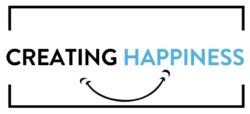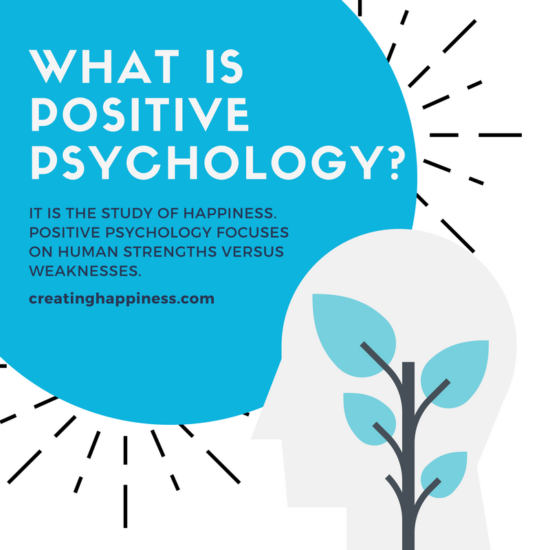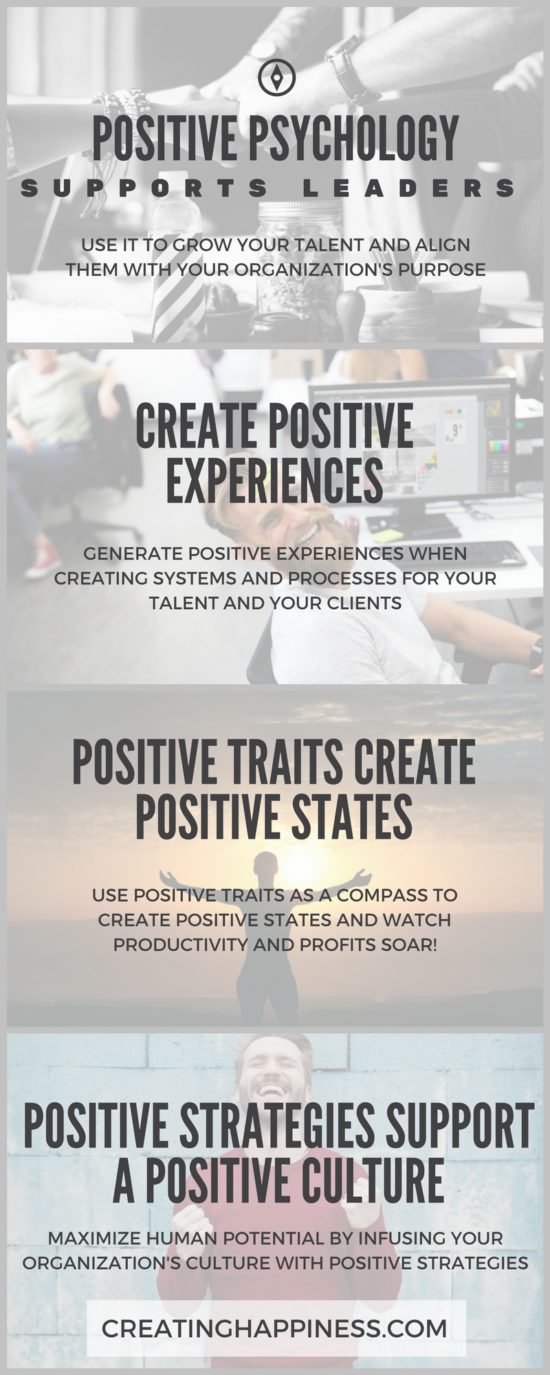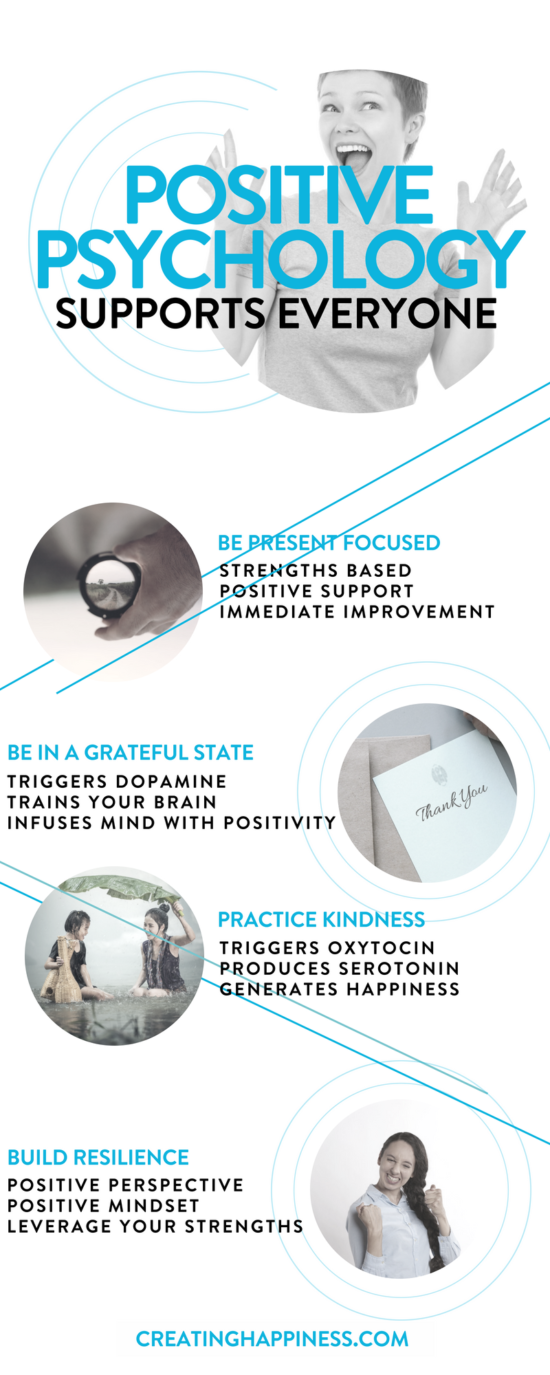Positive Psychology is one of the foundational tools for Creating Happiness, specifically for leaders. But what is it? How can you apply it in other situations? What are the benefits of using positive psychology?
History of Positive Psychology
Abraham Maslow, considered to be one of the founders of psychology who developed the theory of human motivation known as Maslow’s Hierarchy of Needs, began exploring human potential in the 1950’s. He noted that up to that point psychology focused more on man’s shortcomings than his achievable aspirations, thus sparking thought on positive psychology.
Positive Psychology vs. Traditional Psychology
Positive psychology focuses on optimal human functioning in people versus traditional psychology’s disease model. It is based on scientific research on positive emotions like hope, courage, kindness, wisdom and happiness that work like an engine in driving behavior. In contrast, traditional psychology focuses on behaviors like fear, anger, depression and anxiety.
Positive Psychology Outcomes
When positive psychology is applied, successful outcomes are abundant. Individuals experience improved performance and engagement from a sense of well-being and happiness. Feeling a sense of satisfaction and achievement occurs because the focus is shifted on strengths versus weaknesses. Families and teams function better because the environment becomes supportive and synergistic.
How Positive Psychology Supports Leaders
Leaders who use positive psychology as the foundation for their role are focused on 3 things:
1. Creating positive experiences for their teams and ultimately clients
When you create positive experiences for your teams, they feel supported and encouraged to do their jobs well. By doing their jobs well, they take better care of your clients. When your clients are happy, they stay longer and bring their friends.
2. Interacting with others using positive traits to create positive states
Leaders shape the way other people think and behave. If they use positive behavior traits like compassion, kindness, gratitude and resilience they will create a positive work environment. If leaders lack these skills, they will likely only get “minimum wage effort” out of their teams.
3. Positive strategies that support positive cultures
Creating a culture infused with positive strategies to help individuals and teams perform better is one of the most effective ways a leader can make an impact. If the organization doesn’t have an intentional culture, and you can’t impact it from your position, create a micro culture within your team or department. Small changes can often lead to big impact!
How Positive Psychology Supports Individuals
Individuals can apply positive psychology to their lives by mastering their thoughts to evoke positive feelings. Gratitude and kindness are the ultimate weapons to being in a positive state.
Gratitude is first because you can improve your levels of optimism when you reflect on what you are grateful for. You can enjoy better sleep, lower anxiety and become less depressed. Not sure how to become more grateful? When you had a rough day, write down 3 things you are grateful for. With consistent practice of writing down or even journaling what you are grateful for, you are triggering parts of your brain that produce dopamine, training your brain to have more positive thoughts.
Kindness is second because when you are kind to yourself or others, you trigger the part of your brain that delivers Oxytocin which increases optimism and self-esteem. It also trains your brain into a thinking pattern of doing good for yourself and others. You’ll notice that as you build up your kindness muscle through practicing kindness, you will also stimulate the production of Serotonin, which is released by your brain to heal wounds, calm you down and generate happy feelings. Kindness is contagious. When you share it with others, they in turn, share it with others. I love that.
Become your own best cheerleader. Let go of doubt, anger and fear and live a more positive life by building up your strengths and talents.
Positive Psychology Basics on Psychology Today
More reading on Maslow’s Hierarchy of Needs
More reading on Gratitude on Psychology Today
More reading on Kindness from Dartmouth




